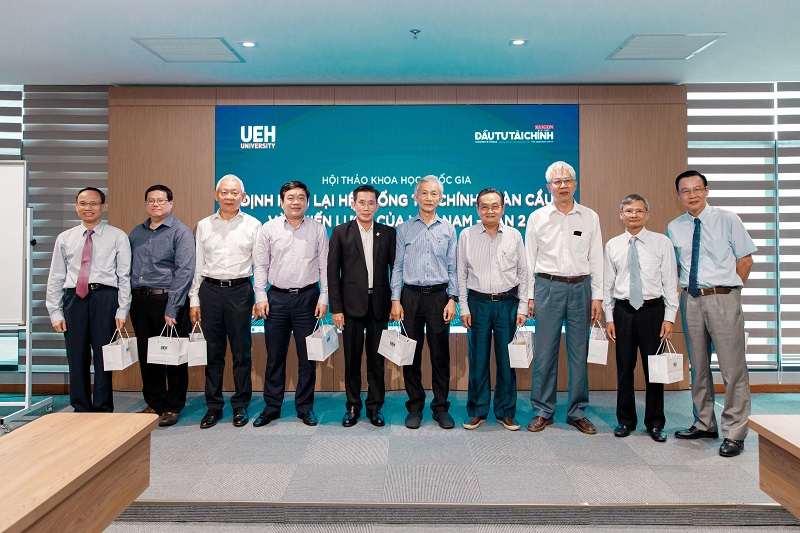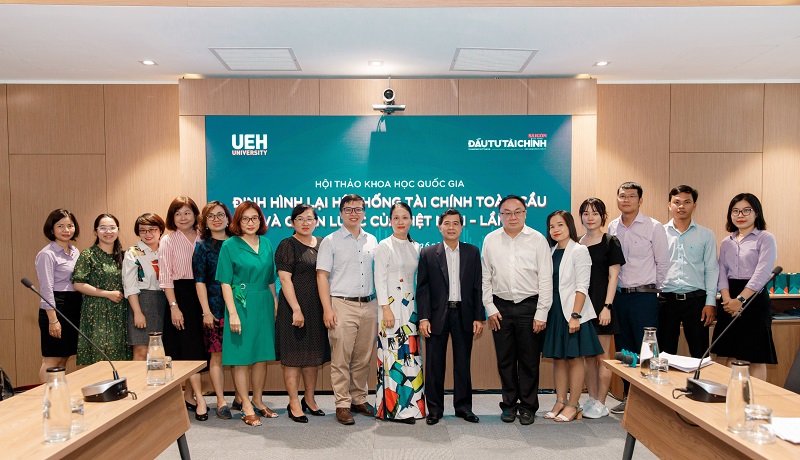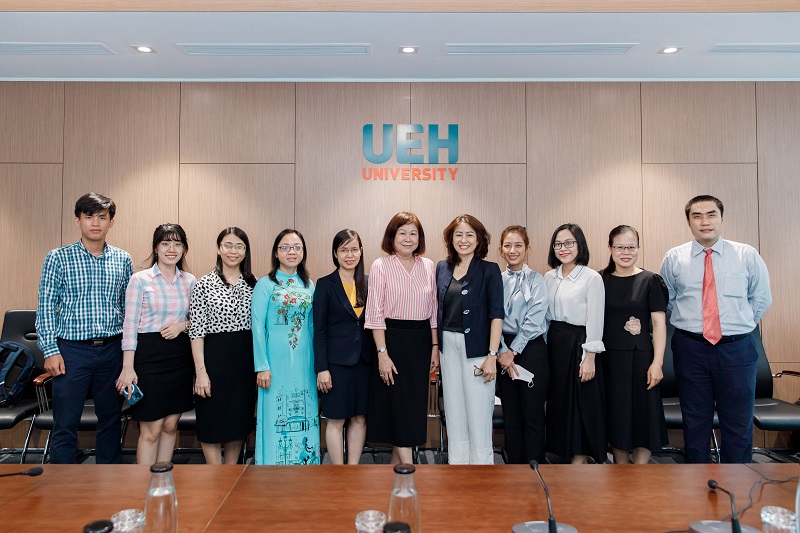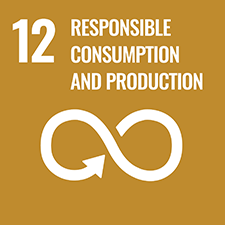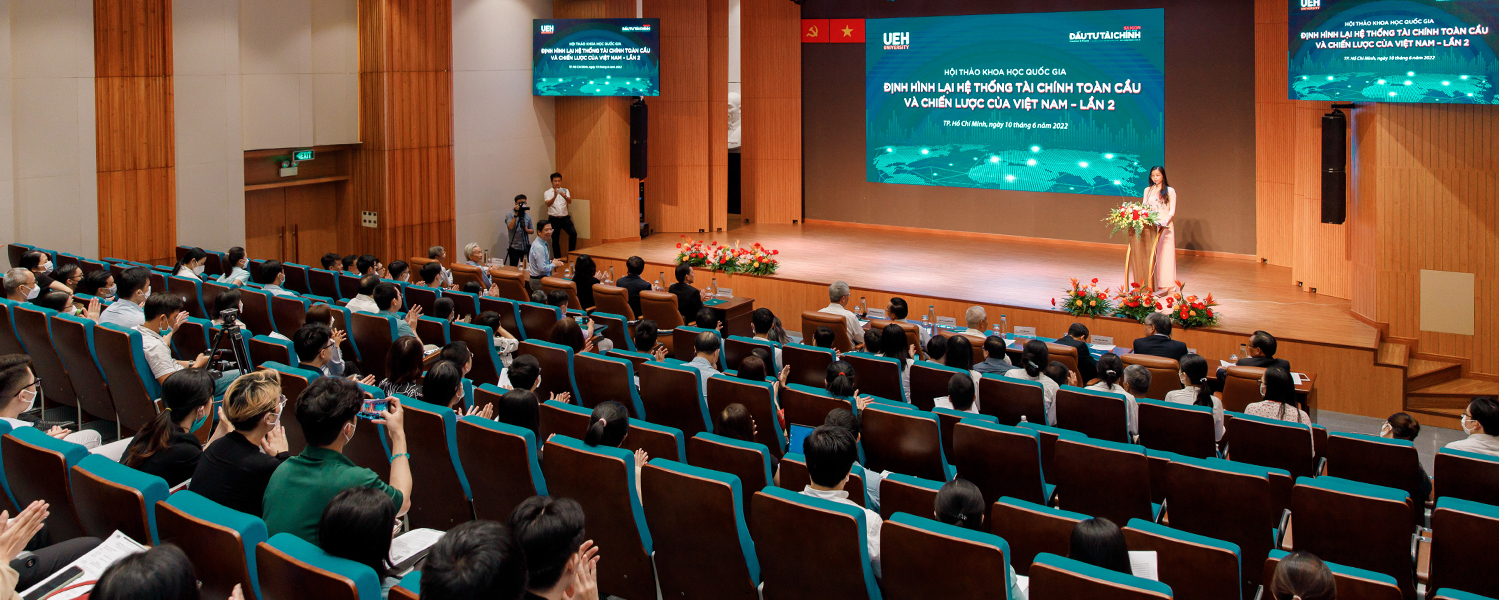
National Scientific Conference “Reshaping the global financial system and Vietnamese strategy - 2nd time”
17 Jun, 2022
The global economic-financial environment is currently facing many uncertainties, with continuous overlapping impacts from the US-China trade war, the Covid-19 pandemic to the Russia-Ukraine conflict and so on, having led to disruptions in supply chains and an increase in global inflation. Facing these uncertainties, in order to find development policies for Vietnam, the University of Economics Ho Chi Minh City (UEH) coordinated with the Prime Minister’s Economic Advisory Group and Saigon Giai Phong Investment and Finance Newspaper organized the seminar “Reshaping the global financial system and Vietnamese strategy – 2nd time” on the morning of June 10, 2021 at Campus B (279 Nguyen Tri Phuong, Ward 5, District 10, HCMC).
Although the Covid-19 pandemic has been controlled in some way, its consequences along with new risks are hindering the recovery of global economic activities. Covid-19 has pushed total global debt to its highest level in half a century, increasing poverty, income inequality, access to education and healthcare and unemployment.
Globally and in major economies, inflation has been at its highest level since the global financial crisis. In emerging markets and developing economies, inflation has reached its highest level since 2011. The rise in inflation forced governments to implement tightening monetary measures before the economy completely recovered after the pandemic. However, tight monetary policy to curb inflation caused another bigger worry - an economic recession. Global economic growth forecast for the next two years is becoming less optimistic.
While the global economy has not yet recovered from the Covid-19 pandemic, the conflict between Russia and Ukraine broke out, accompanied by sanctions imposed from the parties that have been exacerbating the supply chain disruption. The fact that the capital supply is being weak pushes up the prices of diverse strategic goods, typically oil and energy prices, and possibly food prices as well as further catalyzes the inflationary pressure with the negative impacts on business activity, investment and consumption on a global scale.
The global geopolitical landscape is undergoing many changes, reshaping the position of regions. Asia is increasingly emerging as a key player in shaping the global financial network, as financial centers in developed countries listed as the United States and Britain seem to be losing ground after the crisis global financial markets 2008, Brexit, and the imposition of sanctions on investment assets and payment systems since the Russian-Ukrainian conflict. At the same time, in the context that the digital financial world is an irresistible trend, the challenges for Asian emerging countries to get a position on the international financial map are not small. Accompanying is the increasingly fierce strategic competition between major countries to compete for the leading position. Could the U.S. position and the international monetary role of the dollar be impaired? Can it the ability to rise to become the leader of the global economy and make the renminbi an international currency? More diverse problems are posing for policymakers in the face of global changes.
As a result, the global economy is continuing to face diverse uncertain factors. What strategies do countries, especially developing countries like Vietnam, need to have to adapt and improve their competitive advantage in the face of a series of uncertainties mentioned above, which is a big issue for policymakers, academics and businesses.
In terms of this background, University of Economics Ho Chi Minh City. In Ho Chi Minh City, the Economic Advisory Group of the Prime Minister and the Saigon Giai Phong Newspaper - Financial Investment cooperated to organize the workshop “Reshaping the global financial system and Vietnam's strategy - The 2nd” with the participation of members of the National Financial and Monetary Policy Advisory Council.
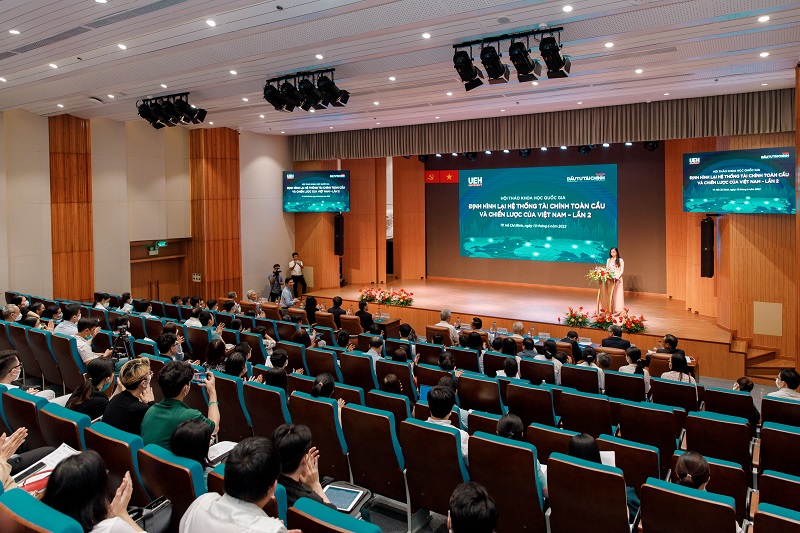
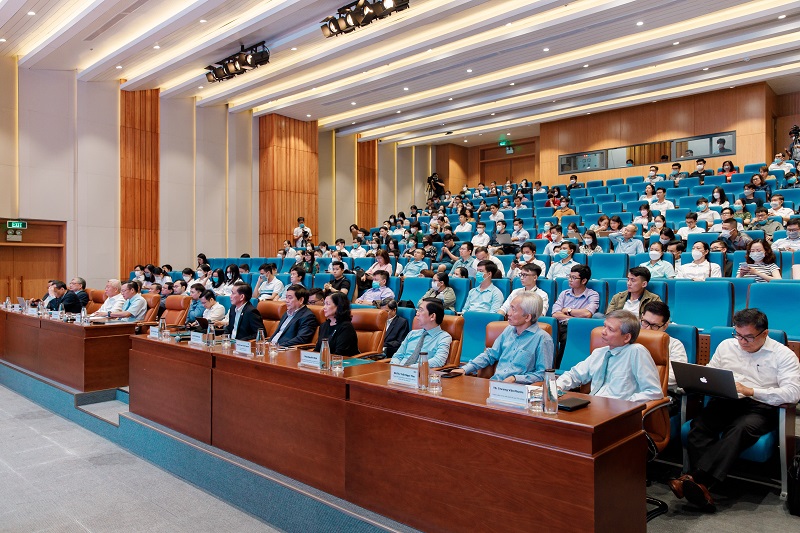
Overview of the Conference
Attending the workshop, on behalf of UEH, there were: Prof. Dr. Su Dinh Thanh - Rector of UEH; Assoc. Prof. Dr. Phan Thi Bich Nguyet - Chairwoman of the Strategy and Policy Advisory Council; Assoc. Prof. Dr. Bui Thanh Trang - Vice Rector of UEH Business School, Dean of International Business – Marketing and more together with all UEH teachers, researchers, experts and fellows attended the seminar.
On behalf of Saigon Giai Phong Newspaper - Financial Investment, there were: Mr. Tang Huu Phong - Editor-in-Chief of Saigon Giai Phong Newspaper; Mr. Nguyen Nhat - Permanent Deputy Editor-in-Chief of Saigon Liberation Newspaper - in charge of Saigon Newspaper - Financial Investment.
In terms of the guest partipants, there were the presence of members of the Prime Minister’s Economic Advisory Group: Dr. Nguyen Duc Kien, Dr. Chu Khanh Lan, Dr. Truong Van Phuoc, Dr. Tran Du Lich together with the members of the National Financial and Monetary Policy Advisory Council: Prof. Dr. Tran Ngoc Tho, Prof. Dr. Tran Tho Dat, Dr. Can Van Luc, Assoc. Prof. Dr. Tran Dinh Thien and so on besides the participation of domestic and international scientists and researchers.
Speaking at the opening of the workshop, Prof. Dr. Su Dinh Thanh - Rector of UEH shared: “The global economy is facing a series of uncertainties listed as the US-China trade war, the Covid-19 pandemic, the Russia-Ukraine conflict creating challenges towards the global economic and financial system. These uncertainties are persistent and unpredictable, causing massive great consequences for the economy, that is, disrupting supply chains, pushing up prices of diverse strategic goods, increasing inflationary pressures, and increasing inflation pressure, negatively impacting investment, consumption and social life. At the same time, the global geopolitical landscape is changing, the strategic competition between major countries is becoming increasingly fierce, the reshaping of the position of regions, in which the role of Asia is increasingly emerging as a key player in reshaping the global financial system. In the context of the industrial revolution 4.0, the world of digital finance is an inevitable trend of the times. The development of technology in the financial sector (Fintech) has virtually reshaped many new financial services, leading to new business networks in Asian countries. However, the challenges for emerging countries in Asia to get a position on the international financial map are not limited. In order to create an information channel for speakers, guests, and researchers to share and discuss trends, opportunities, and challenges associated with the above uncertainties, and Vietnam needs strategies, to adapt and to place their names on the financial map of the region and the world, the University of Economics of Ho Chi Minh City, the Prime Minister’s Economic Advisory Group, and the Saigon Investment and Finance Newspaper, organized the National Scientific Conference “Reshaping the global financial system and Vietnamese strategy - The 2nd time” today. It is hoped that, through the discussions in the workshop, all of us can present strategic proposals for Vietnam to take advantage of the opportunities that the reshaping of the global financial-monetary system is bringing while minimizing the accompanying challenges.”
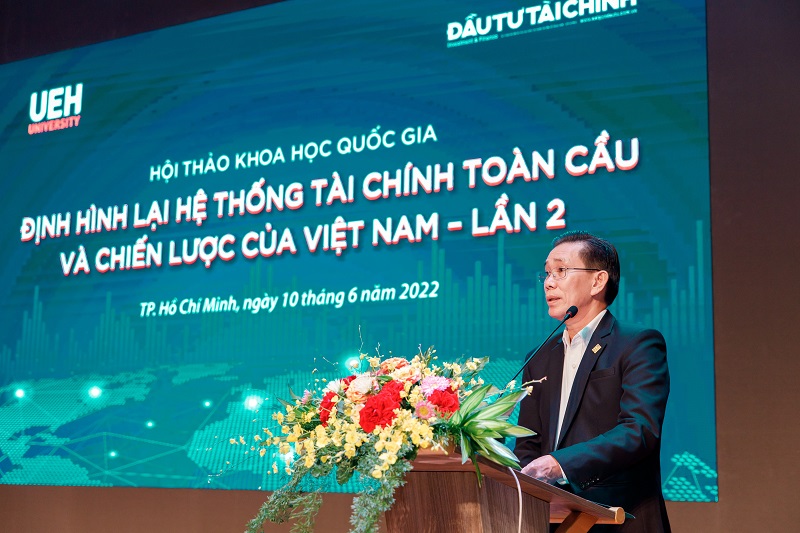
Prof. Dr. Su Dinh Thanh - Rector of UEH - delivering the opening speech of the conference
The conference has received attention from scientists, experts, businesses, etc. with more than 80 papers attended. The articles selected to be presented and published in the conference proceedings revolved around four topics, including:
1. Global financial system and strategy for Vietnam: Discussing monetary and financial policies for Vietnam in the context of global inflation, changing international trade flows, financial market development and so on to promote economic growth and development.
2. Financial, monetary policy and economic growth: Presenting and discussing research results on policy instability, oil price and global inflation, the impact of private credit on economic growth economy and income per capita, the impact of monetary policy on the systemic risk of financial institutions and so on.
3. Digital economy and FinTech: Discussing the issues of risks, legal framework and digital transformation trends in the economy and financial industry.
4. Finance, business and corporate governance: Discussing contents related to business operations, supply chain and corporate governance in an uncertain world environment.
At the conference, Dr. Nguyen Duc Kien - Head of the Prime Minister’s Economic Advisory Group - presented the presentation “Macroeconomic stabilization towards the financial market in the new context”. Being under the new impact of three important world contexts: (1) Strategic competition among major countries, (2) High inflation, (3) Slow growth of Chinese economy are important bases towards the Vietnamese economic policy making.
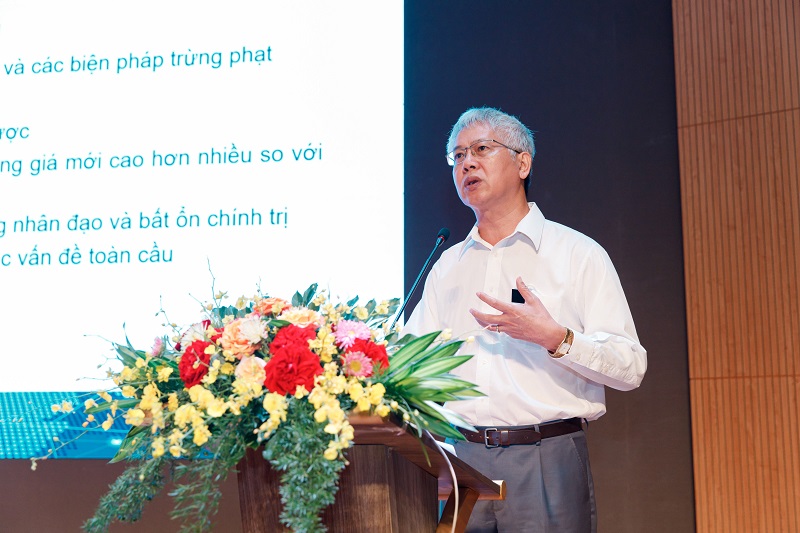
Dr. Nguyen Duc Kien - Head of the Prime Minister’s Economic Advisory Group - presenting the presentation “Macroeconomic stabilization towards the financial market in the new context”
Afterwards, Dr. Can Van Luc - Member of the National Financial and Monetary Policy Advisory Council - presented the presentation “Financial and monetary risks in the new context and strategic solutions for Vietnam”. With the look at the global contexts in detail on five elements as follows: Russo-Ukrainian War; Uneven recovery, Chinese slow economic growth; Commodity prices, Escalating inflation; Broken supply chain; Digital transformation, digital currency and green economy catalyzation, Dr. Can Van Luc presented the policy recommendations for economic and monetary development for Vietnam in the up-coming time.
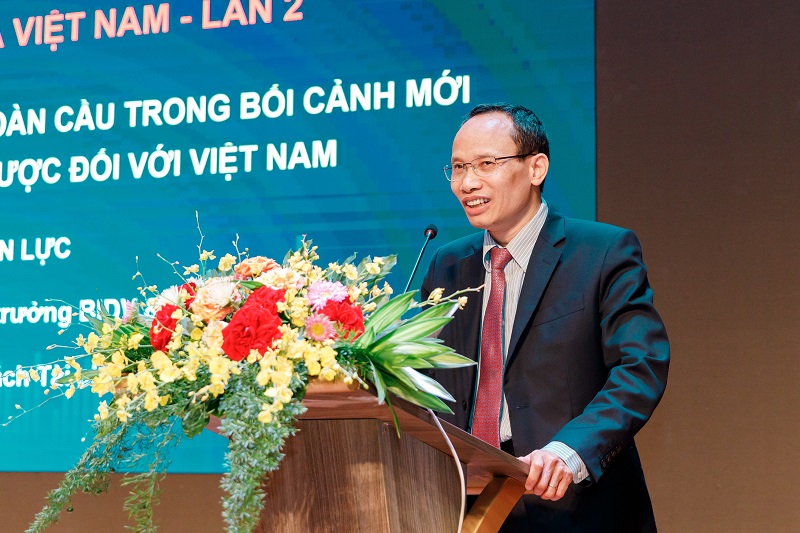
Dr. Can Van Luc - Member of the National Financial and Monetary Policy Advisory Council – presenting the presentation “Financial and monetary risks in the new context and strategic solutions for Vietnam”
“What policy for Vietnam?” content continued to be discussed at the discussion session in topic 1 among the scientists and the members of the Prime Minister’s Economic Advisory Group and the National Advisory Council for Monetary and Financial Policy.
The workshop was a great success with the enthusiastic participation and response of the guests, through which, it helped to propose strategies for Vietnam to adapt to global changes, and at the same time, to minimize the impacts regarding accompanying challenge of the climate change.
- View conference proceedings đây
Additional pictures at the conference:
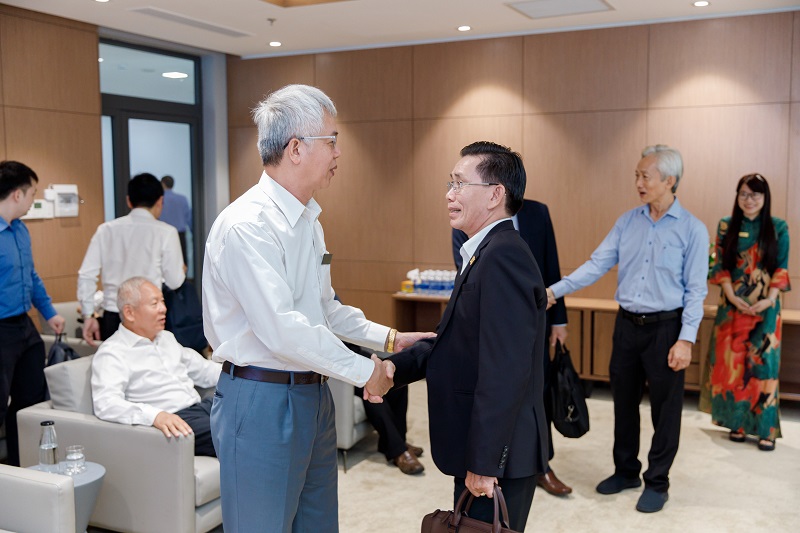
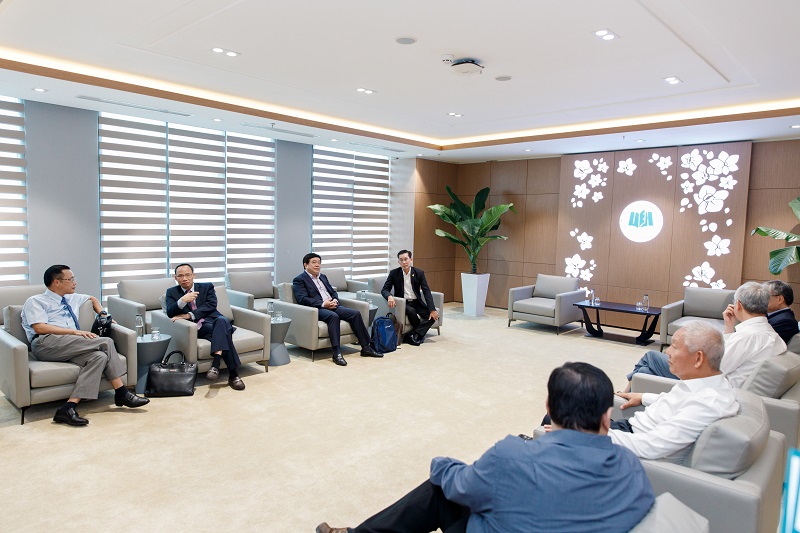
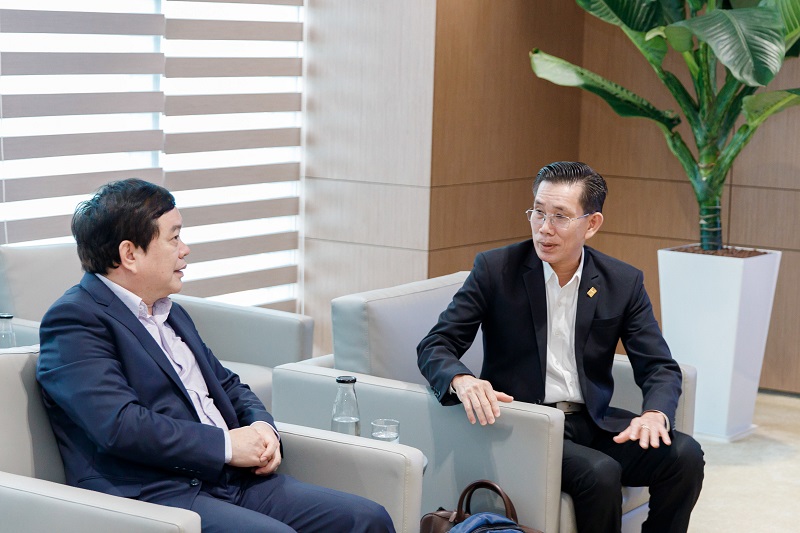
GS.TS. Sử Đình Thành tiếp đón quý đại biểu, chuyên gia tại phòng Khánh tiết
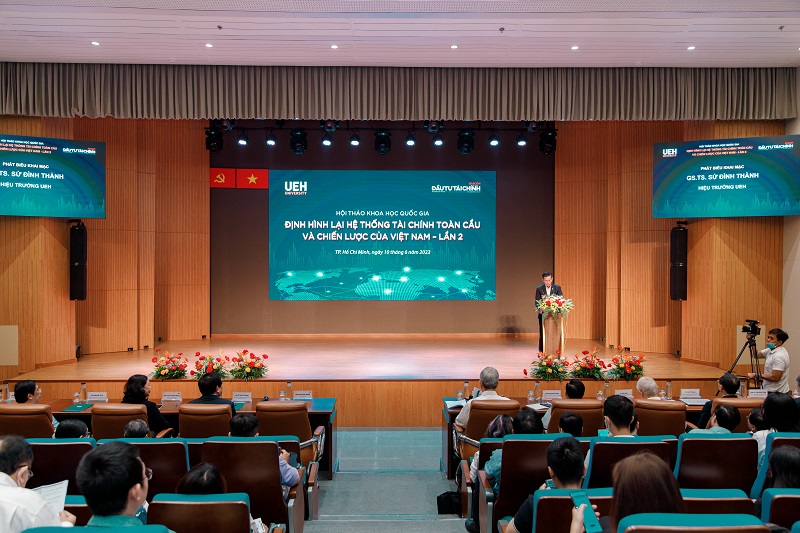
GS.TS. Sử Đình Thành phát biểu khai mạc
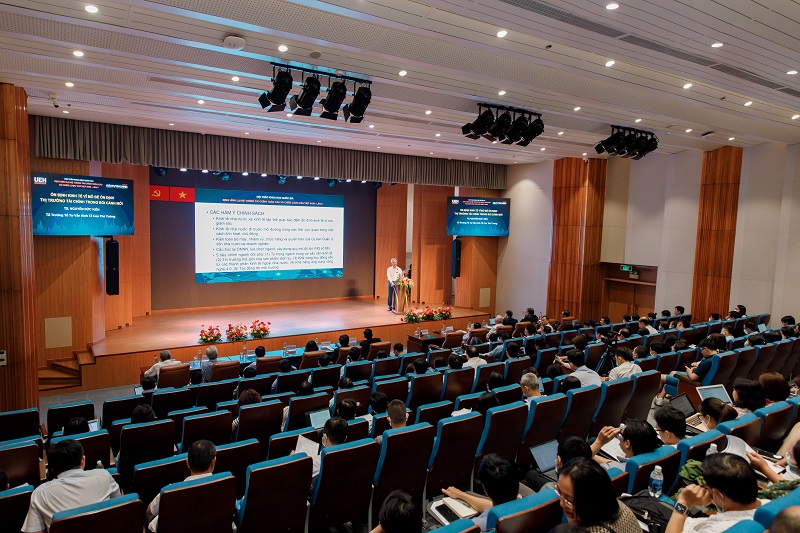
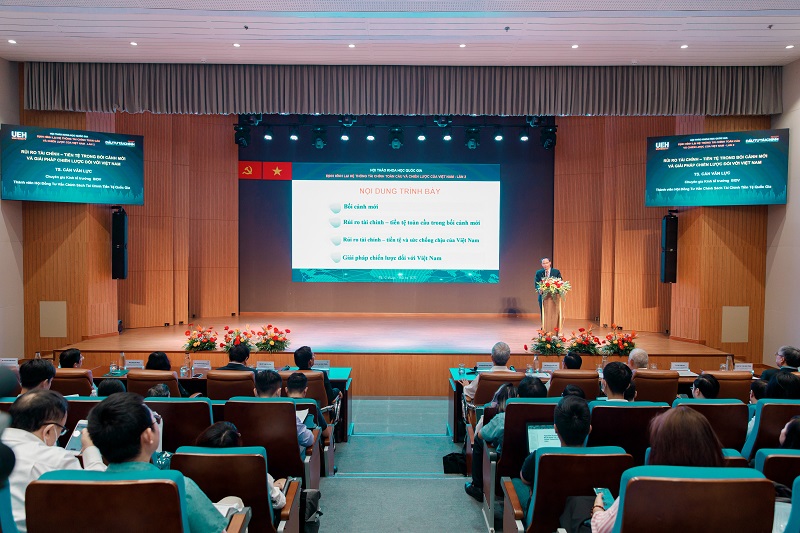
Các chuyên gia trình bày tham luận
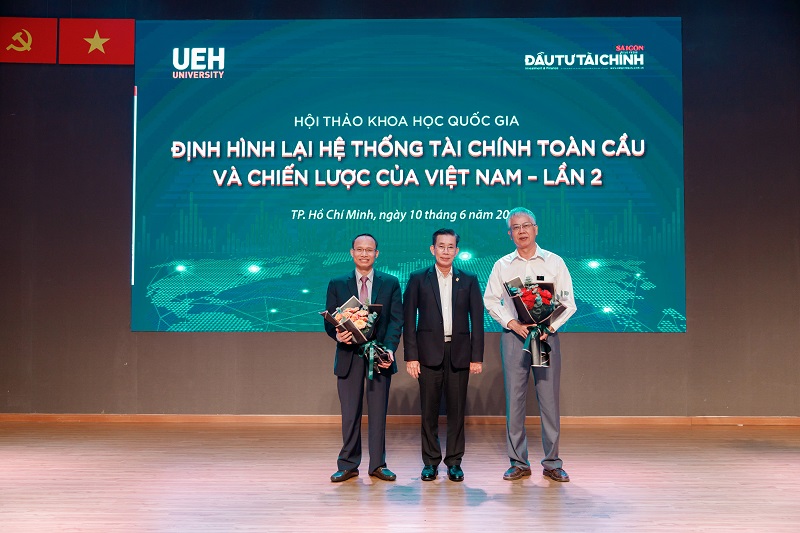
GS.TS. Sử Đình Thành tặng hoa lưu niệm cho 2 chuyên gia
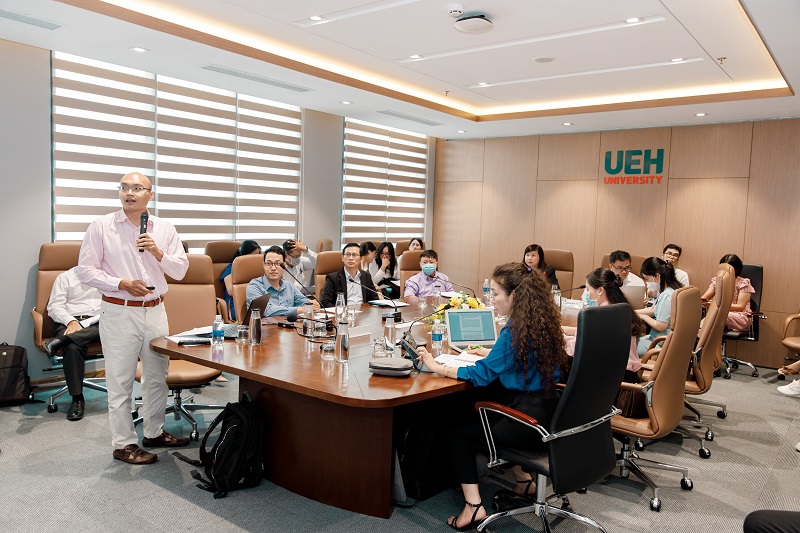
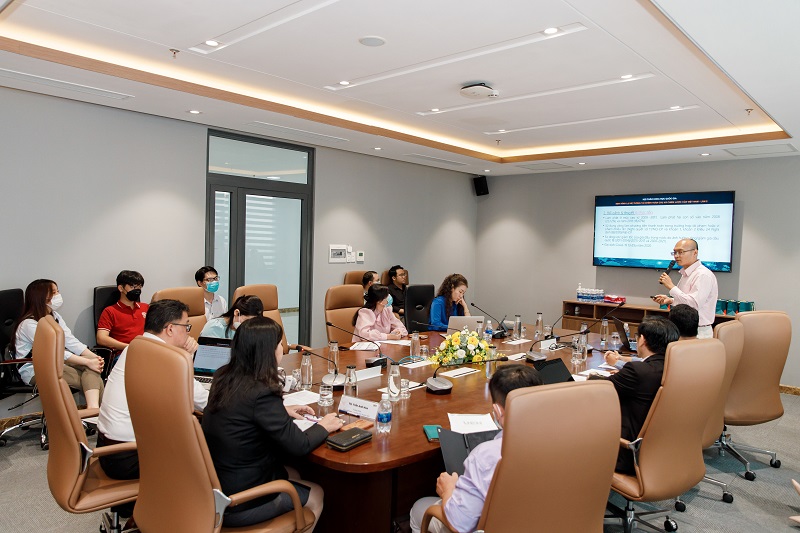
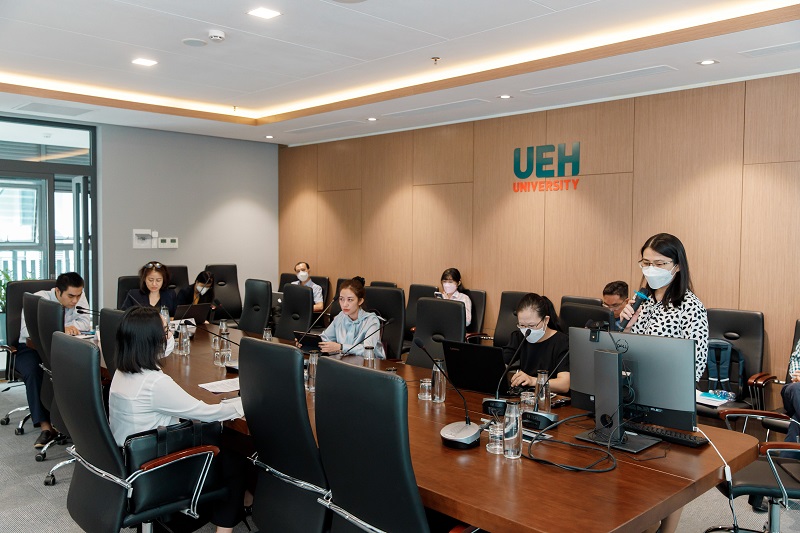
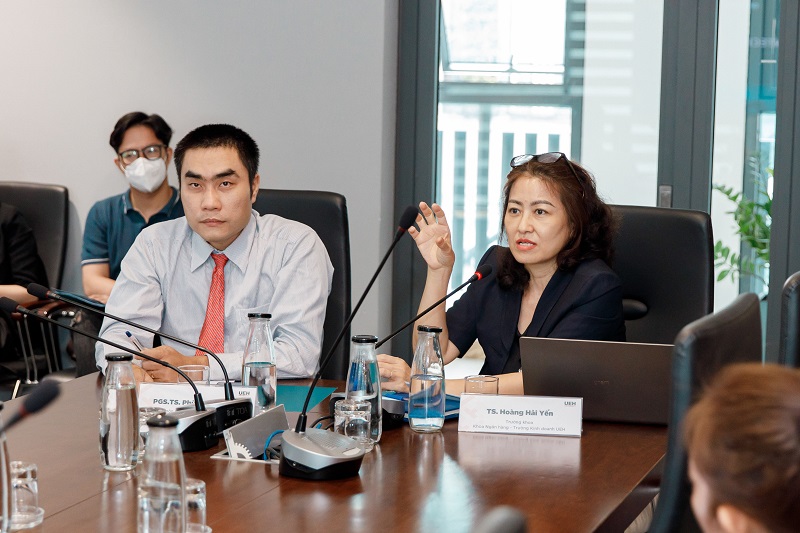
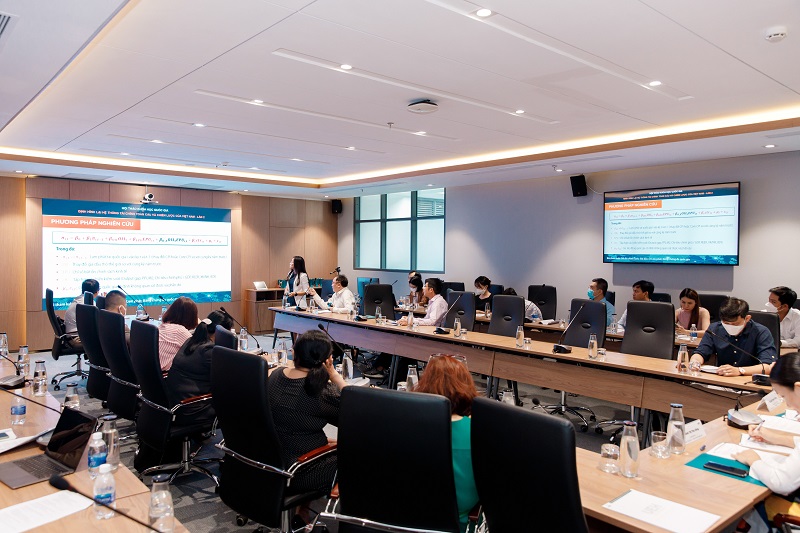
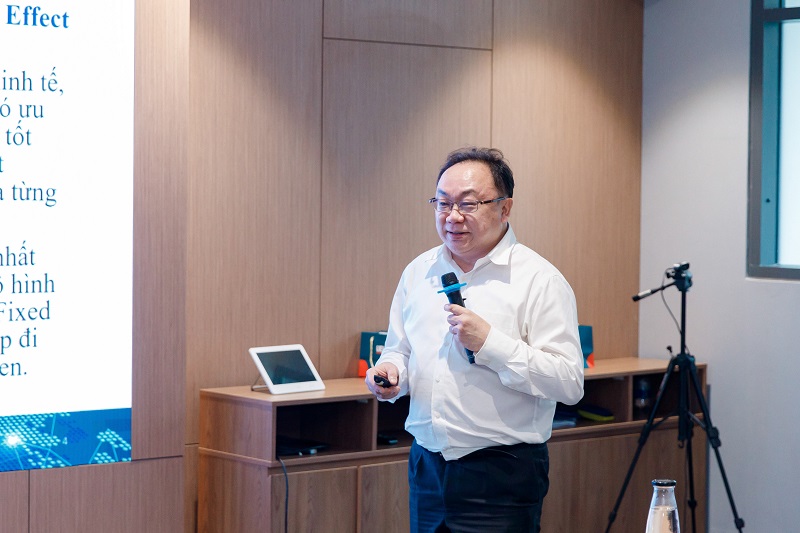
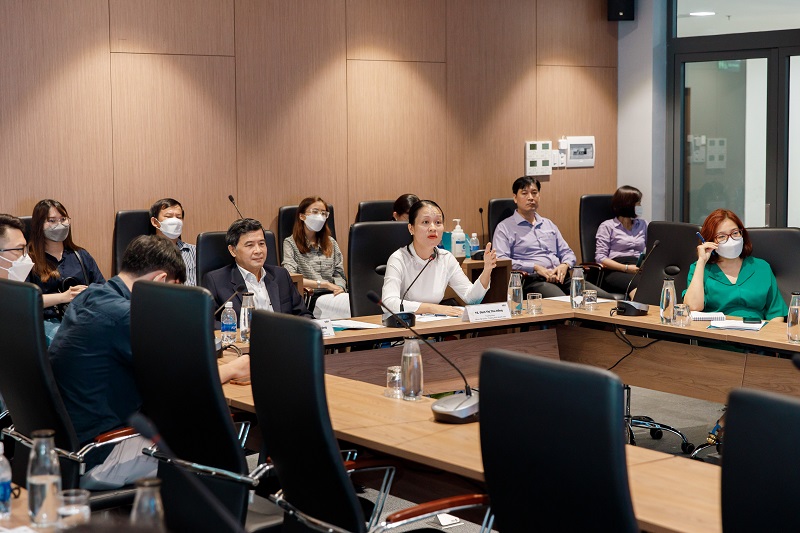
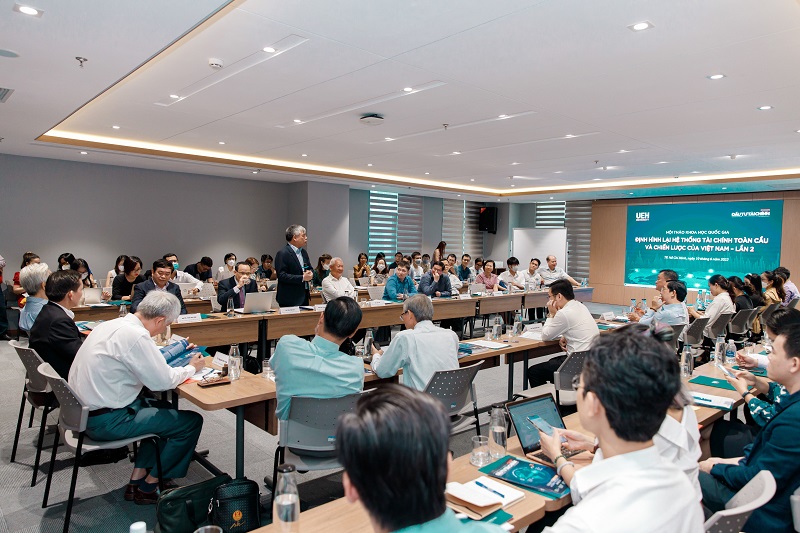
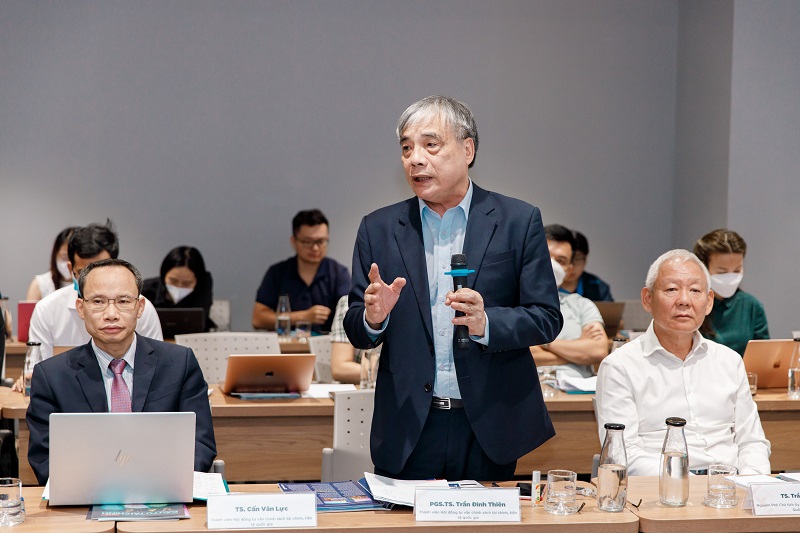
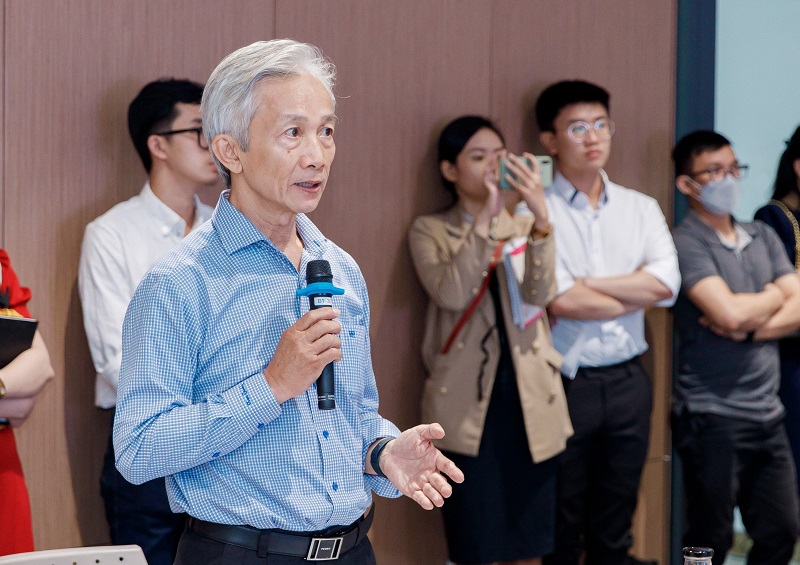
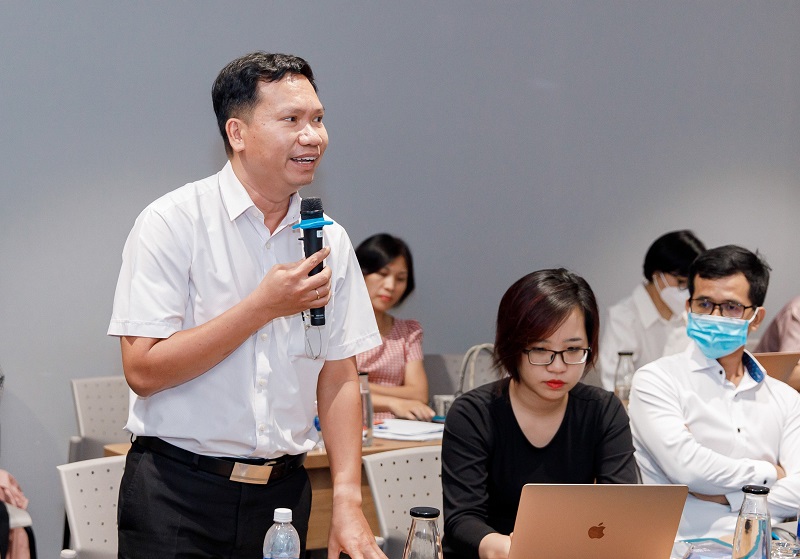
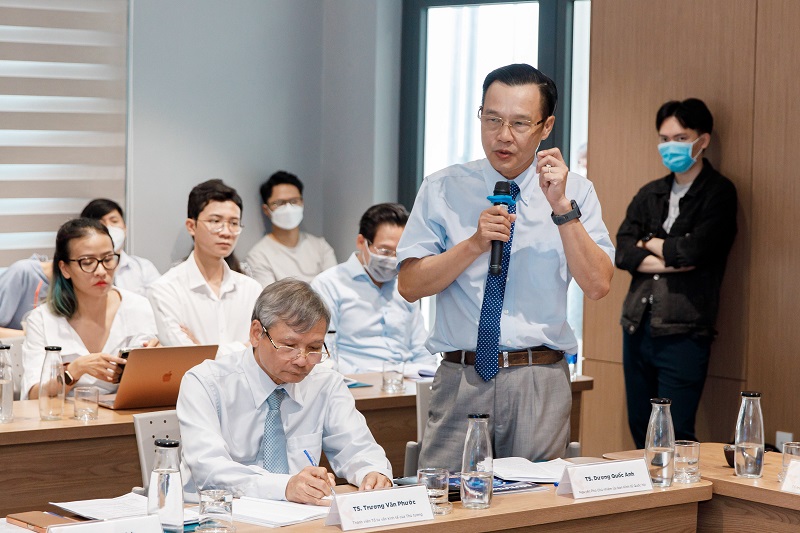
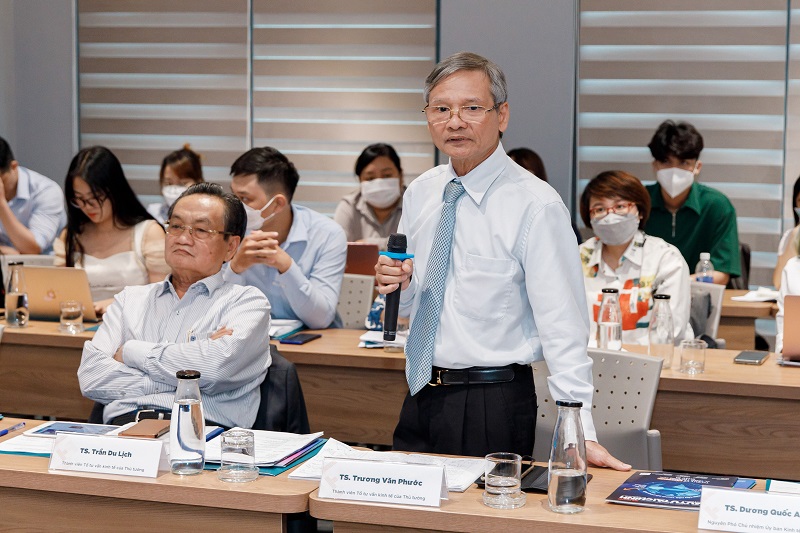
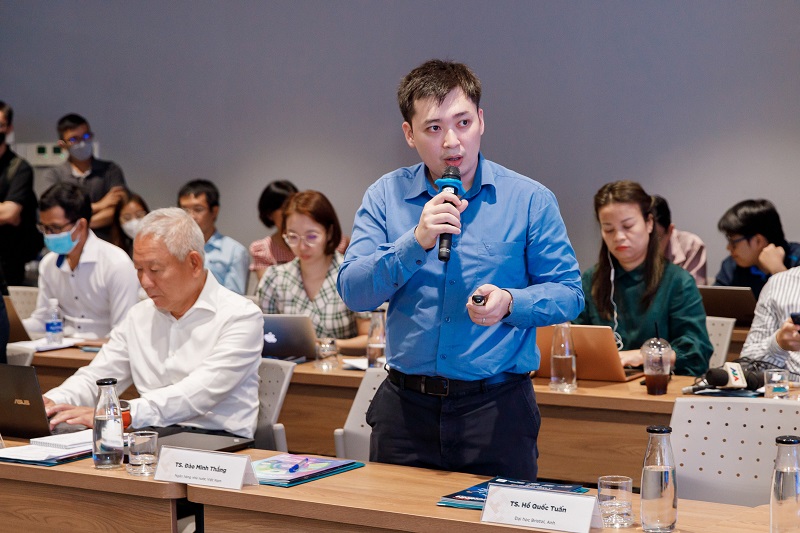
Các phiên thảo luận trong khuôn khổ hội thảo
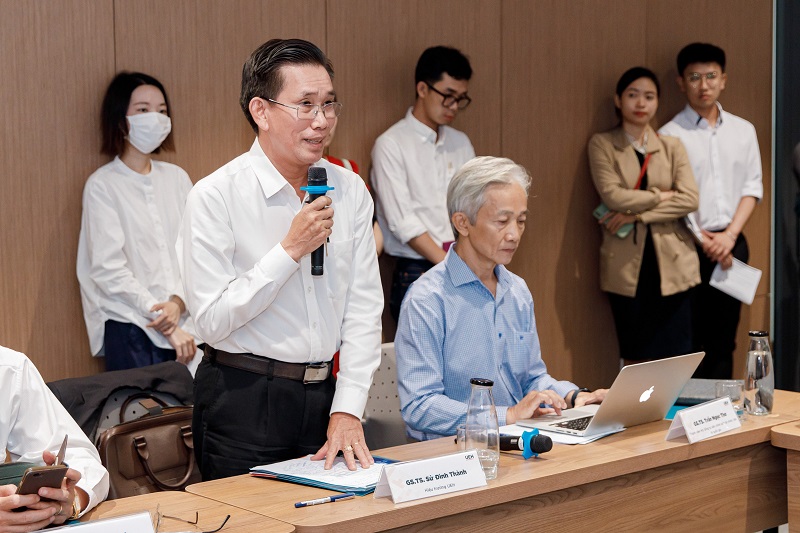
GS.TS. Sử Đình Thành phát biểu bế mạc hội thảo
